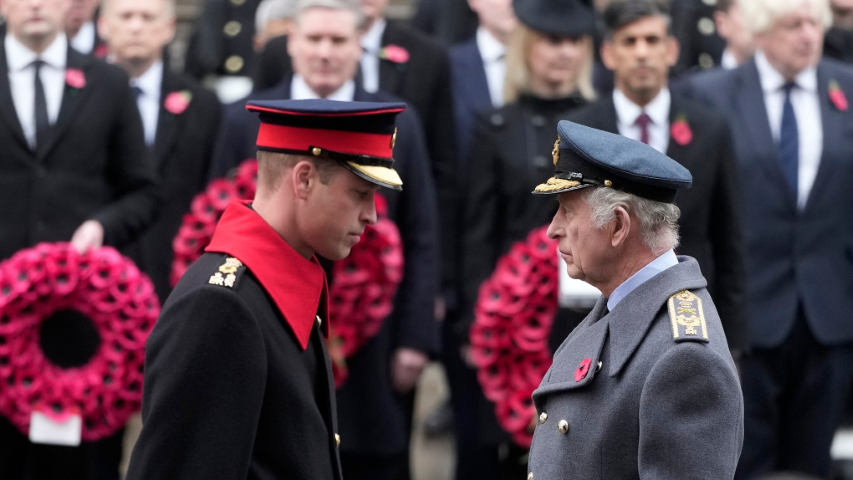
King Charles III and Prince William participate in the Remembrance Sunday ceremony at the Cenotaph on Whitehall in London, November 12, 2023. (Photo credit: AP Photo/Kin Cheung, Pool)
In a shocking turn of events, the Royal Family's health crisis deepens as King Charles III has been diagnosed with cancer. This revelation comes on the heels of his recent treatment for an enlarged prostate, an episode that seemed to be resolved just days ago. The Buckingham Palace issued a statement, unravelling a narrative of unexpected health complications for the monarch.
The statement disclosed that during a routine procedure for benign prostate enlargement, medical professionals discovered an additional cause for concern — a form of cancer. Subsequent diagnostic tests have confirmed the diagnosis, prompting the King to embark on a schedule of regular treatments. Advised by doctors to temporarily step back from public-facing duties, King Charles III remains committed to fulfilling his State responsibilities and official paperwork.
The King, appreciative of his medical team's swift intervention, exudes positivity about his treatment and eagerly anticipates a return to full public duty. His decision to share his diagnosis aims to quell speculation and foster public understanding of the challenges faced by those grappling with cancer globally.
Details regarding the type, severity, and prognosis of the cancer remain undisclosed, leaving the public in suspense. The King personally informed his sons, Prince William and Prince Harry, with Prince Harry planning to travel to the U.K. in the coming days. Meanwhile, well-wishes pour in from around the world, with U.K. Prime Minister Rishi Sunak expressing optimism about the King's recovery.
As the King takes time off for treatment, Prince William is expected to resume Royal duties, participating in investitures and attending events close to his heart, such as the London Air Ambulance annual fundraiser. The Queen, undeterred by recent events, continues her busy schedule of engagements alongside the Duchess of Edinburgh and Princess Anne.
The looming uncertainty extends to the Royal tours scheduled for King Charles and Queen Camilla, casting doubt on trips to Canada in May and Australia in October. The absence of counsellors of state at this juncture suggests a continued reliance on the King's constitutional functions.
In an unprecedented move, Buckingham Palace exhibits transparency and openness in disseminating information about the monarch's health. This marks a significant departure from traditional practices, providing the public with a deeper insight into the challenges faced by the Royal Family.
Furthermore, King Charles III leverages his platform to raise awareness about health conditions, notably his role as the Patron of Macmillan Cancer Support and other cancer charities. The impact is tangible, as the revelation prompts a surge in searches on the U.K.'s National Health Service website, highlighting the King's influence in shedding light on critical health issues.
Amid the unfolding health crisis, the monarch's determination to continue championing awareness and fulfilling his constitutional duties underscores his resilience. The world watches with bated breath as the Royal Family navigates this uncharted territory, grappling with uncertainty and rallying around their ailing monarch.















